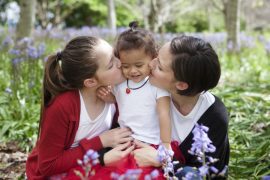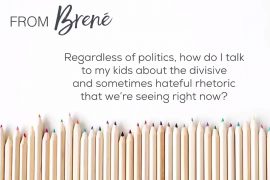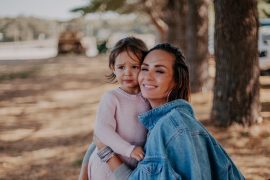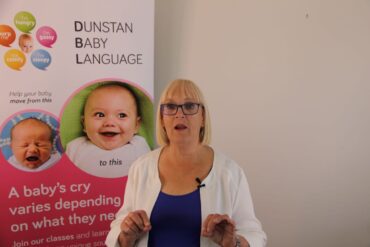Sarah from Dandelion Seeds Positive Parenting:
Yeah, that really is a paradigm shift. So many of us are used to “Well, if I see this behavior, I do that to make it stop,” without exploring what’s really going on.
You mentioned pathways. Can you talk a little bit about your pathways concept?
Dr. Mona Delahooke:
Right. The pathways concept is really just another way of thinking about something we all have, which is the autonomic nervous system.
One of the theories of the autonomic nervous system that I think is so useful in helping us translate it from the science to parenting is the polyvagal theory, also known as the neuroscience of love and engagement. Basically our autonomic nervous system has these different pathways.
To oversimplify things, [I talk about pathways] in terms of colors because it’s easier than the scientific names.
The green pathway would be when we’re calm; when our bodies are sensing safety. We’re feeling good inside and outside our bodies. The world coming into us is manageable. In children, we see them playing, they’re able to learn, and they tend to be more cooperative.
These children are talking to us. Their body language is one of calmness: their voices, their posture, the way they’re holding their bodies. You see calmer behavior and an engaged, happy child. That’s a wonderful place to be.
But as human beings, we can’t [always] live [in the green pathway] because we’re not robots and our our world presents challenges.
No matter if you’re a three-year-old where, you know, the challenge might be that you got the wrong kind of food for lunch, or as an adult, it might be that you get really bad news.
In these situations, we have these protective other pathways. The first one that we generally go to involves movement and it’s called the red pathway. That’s where we might have increased heart rate, sweaty palms — like I said, your nervous system is detecting threat.
You might see challenging behaviors like kicking, hitting, screaming, or running away. Those kinds of behaviors that we may tend to think about as misbehavior or challenged behaviors can be a sign of this autonomic distress, in which their nervous system is trying to feel better through movement.
One way to think about this behavior is, “Oh no, I have to shift this behavior. My child’s nervous system is feeling vulnerable right now. This is a vulnerable platform, not a misbehaving child.
Dr. Mona Delahooke
And then there’s also a third pathway. We know now that there are blended pathways, as well. But just for our purposes, the blue pathway may be where a child is just kind of blue and shut down, not wanting to move much. They’re not wanting to play or to seek contact. They might have a very sad look on their face and a very quiet voice.
We move through these pathways adaptively throughout the day.
So you may have moments of feeling blue and hopeless, but we want to watch out for blue or red pathways predominating over days and weeks…We want to see a child spending about seventy percent of their waking hours in the green.
The full interview is available here.
About Dr. Mona Delahooke
Mona Delahooke, PhD, is a licensed clinical psychologist with more than 30 years of experience caring for children and their families. She is a senior faculty member of the Profectum Foundation, an organisation dedicated to supporting families of neurodiverse children, adolescents and adults. She is a trainer for the Los Angeles County Department of Mental Health.
Dr. Delahooke holds the highest level of endorsement in the field of infant and toddler mental health in California, as a Reflective Practice Mentor (RPM). She is a frequent speaker, trainer, and consultant to parents, organisations, schools, and public agencies. Dr. Delahooke has dedicated her career to promoting compassionate, relationship-based neurodevelopmental interventions for children with developmental, behavioral, emotional, and learning differences.
She is the author of the award winning book Beyond Behaviors: Using Brain Science and Compassion to Understand and Solve Children’s Behavioral Challenges (PESI, 2019), and Social and Emotional Development in Early Intervention: A Skills Guide for Working with Children (PESI, 2017). Her popular blog, at www.monadelahooke.com covers a range of topics useful for caregivers and childhood providers. Follow her on Facebook: @DrMonaDelahooke, Instagram: @monadelahooke and Twitter @monadelahooke.
Originally published here.
Sarah R. Moore is the founder of Dandelion Seeds Positive Parenting, an author (first parenting book coming 2022), an armchair neuroscientist, and most importantly, a Mama. She’s a lifelong learner with training in child development, improv comedy, trauma recovery, and interpersonal neurobiology. She helps bring JOY, EASE, and CONNECTION back to families. Take her science-based and video mini-courses here, and follow her on Facebook, Instagram, Twitter, YouTube and Pinterest.










